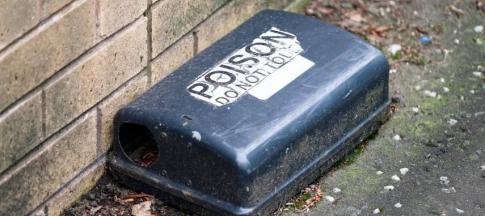
The warmer months usually bring more flying insects, like wasps, hornets and bees.
Here we explain more about wasps and hornets and how to get rid of them in your home.
Wasps in the UK
Most wasps are surprisingly tame and will only sting in self-defence.
They become more of an issue in the late summer and early autumn, when they need sugary substances to feed themselves. This could be nectar – or human food and drink.
According to Paul Blackhurst, Technical Academy Head at Rentokil Pest Control, “wasps can also be highly beneficial to the ecosystem, especially when they are feeding their young grubs protein.”
“It’s when the grub-to-adult ratio drops that issues can come up, as the adult wasps still crave their carb fix but may not get enough from their offspring.”
“This is when wasps can start becoming particularly annoying and persistent around things like ice creams and sugary drinks.”
Signs of a wasps’ nest in your home
You don’t need to come across an entire wasps’ nest to be worried about an infestation. Some signs there might be a nest in your home include:
- seeing wasps in your home more regularly
- scratching or buzzing sounds coming from inside the wall
- dark patches on the walls or ceilings
How to remove wasps from your home
Wasps can be aggressive if their nest is threatened and might sting anyone who gets too close. This is especially dangerous if you’re allergic to wasp stings.
Paul Blackhurst says: “Alongside their painful stings, wasps are notorious for building their nests in places near people, including in building cavities and the eaves of houses, but they can also go unnoticed in attics and lofts.”
“Engaging with a local pest company is your most effective route to the removal of a wasp nest, but there are some DIY products such as traps and sprays that can also help.”
We’ve got some key steps to help you with removing wasps from your home below.
Call a removal service
It’s dangerous to try and remove the wasps’ nest on your own without the right tools or experience.
In fact, even a removal service probably wouldn’t remove the nest while live wasps are inside.
Call a wasp removal service so you can get some professional help with the issue. These companies usually kill the wasp colony first and then remove it afterwards.
Keep doors and windows closed
If you know which room the wasps’ nest is in, keep it closed off from the rest of your home.
This is especially important if you have pets or children or if anyone in your family is allergic to wasp stings.
If the nest is on the outside of your home, keep your windows closed to stop them from coming inside.
Use repellent scents
Like bees, wasps don’t like certain smells. These include:
- peppermint and spearmint
- basil
- geranium
- citronella
- eucalyptus
You can keep these as plants in your home to ward off wasps. Or you can use the essential oil or spray versions.
How to stop getting bothered by wasps
Here are a few ways you can avoid wasps bothering you in your home.
Don’t leave food out
During spring and summer, avoid leaving out any protein-rich food, including pet food. Later in the summer, wasps are attracted to sweet smells, so don’t leave out any sweet food or sugary drinks then.
If your pet food regularly attracts pests, it’s worth considering getting an automatic feeder. Some will seal when your pet leaves, which will keep away pests while keeping the food fresh.
Keep the wasp contained
Distressed or dying wasps release alarm pheromones to warn and call other wasps. To stop a wasp bugging you, try to trap it under a glass and release it when you leave.
Make sure your bins are sealed
Clean your bins regularly and keep them tightly closed. Keep any indoor bins away from windows and external doors, to avoid attracting any pests from outside.
Keep windows and doors closed
If you want to keep your windows open, especially in summer, consider getting a fly screen.
Use herbal scents
As we discussed above, wasps are repelled by herbal and aromatic scents like citronella, spearmint and eucalyptus.
Check your home before summer
Check your home and garden for nests in early spring. At this time of year, they’ll be a more manageable size – about the size of a golf ball.
Look in the attic, in any outbuildings such as sheds, in your garage and under leaves. If you know where there’s been a nest before, check there too, as queen wasps will often return to the same spot.
How to get rid of hornets
Hornets are a type of wasp. They’re the largest of the social wasps and tend to be longer and stockier than common wasps.
Like common wasps, hornets usually only sting when provoked or if their nest is in danger. But they’ll swarm when threatened, which can be intimidating.
The tips for preventing and removing hornets are the same as for common wasps (see above).
But they are good to have around if you’re a keen gardener, as they prey on species which eat plants and crops and are useful for pollination.
Check out our guide on how to safely deal with bees in your home.


